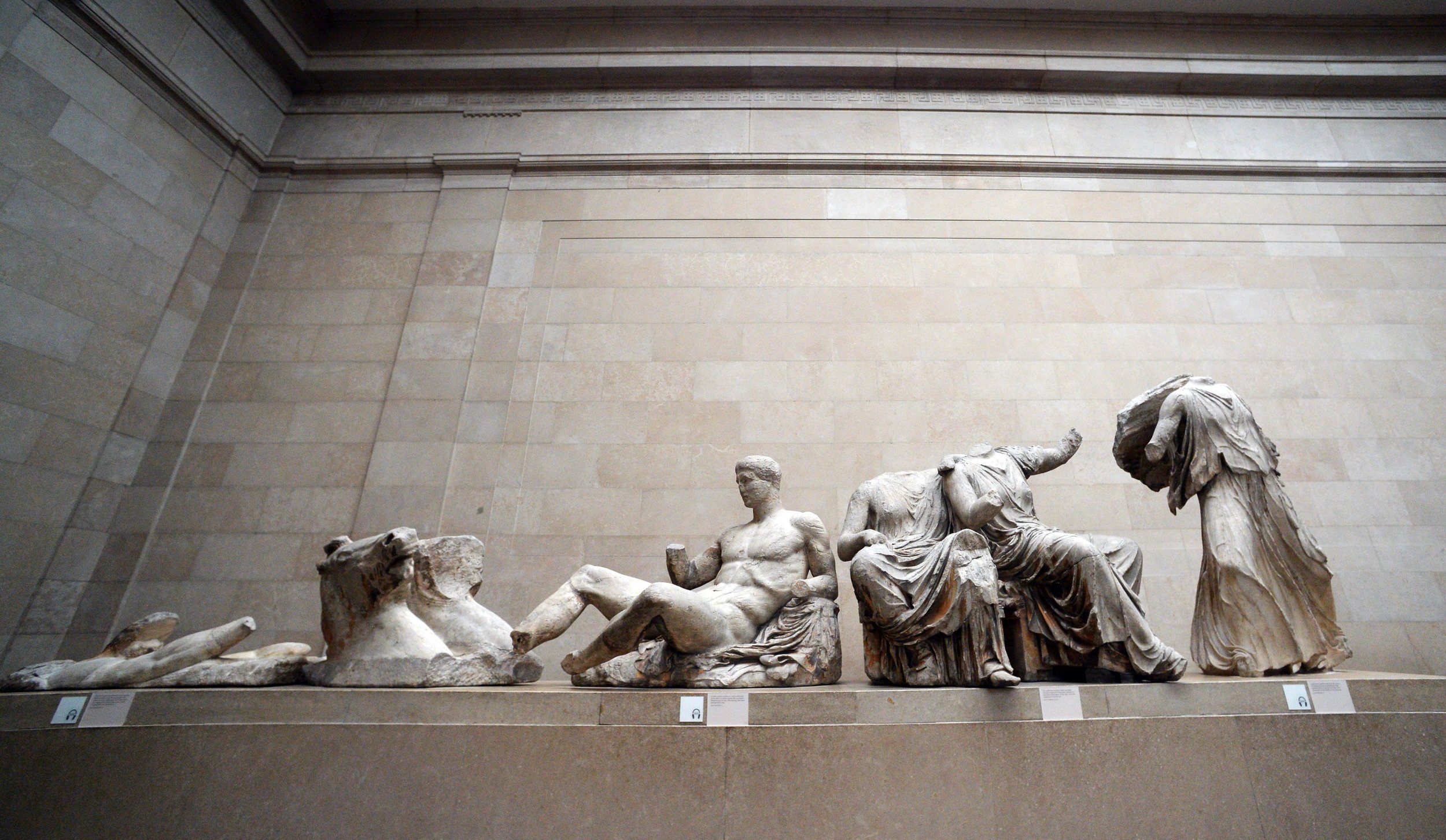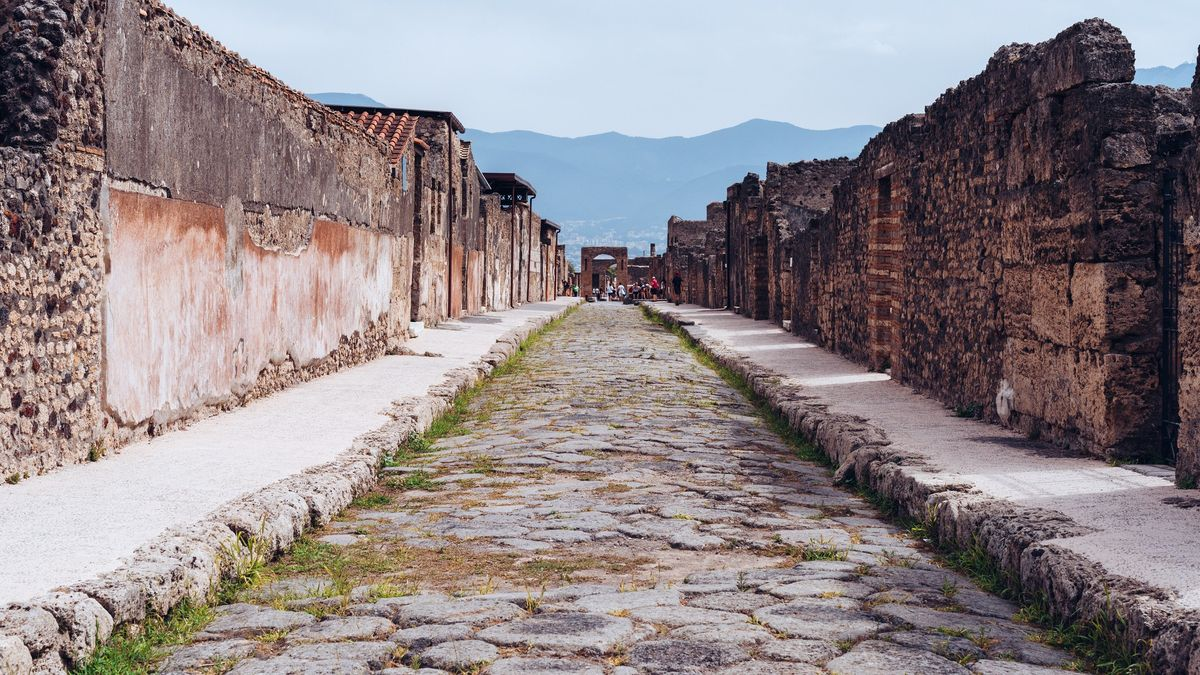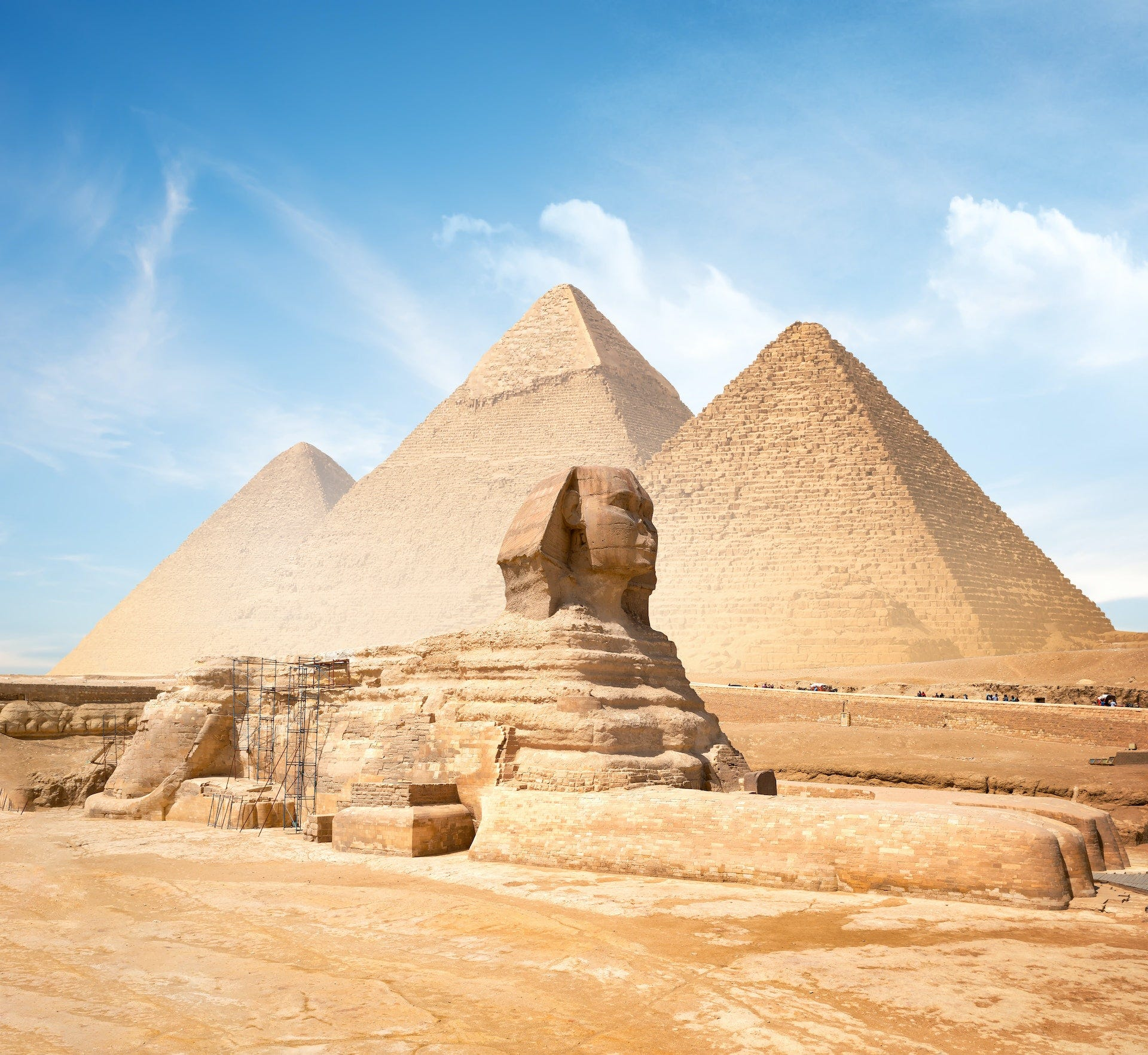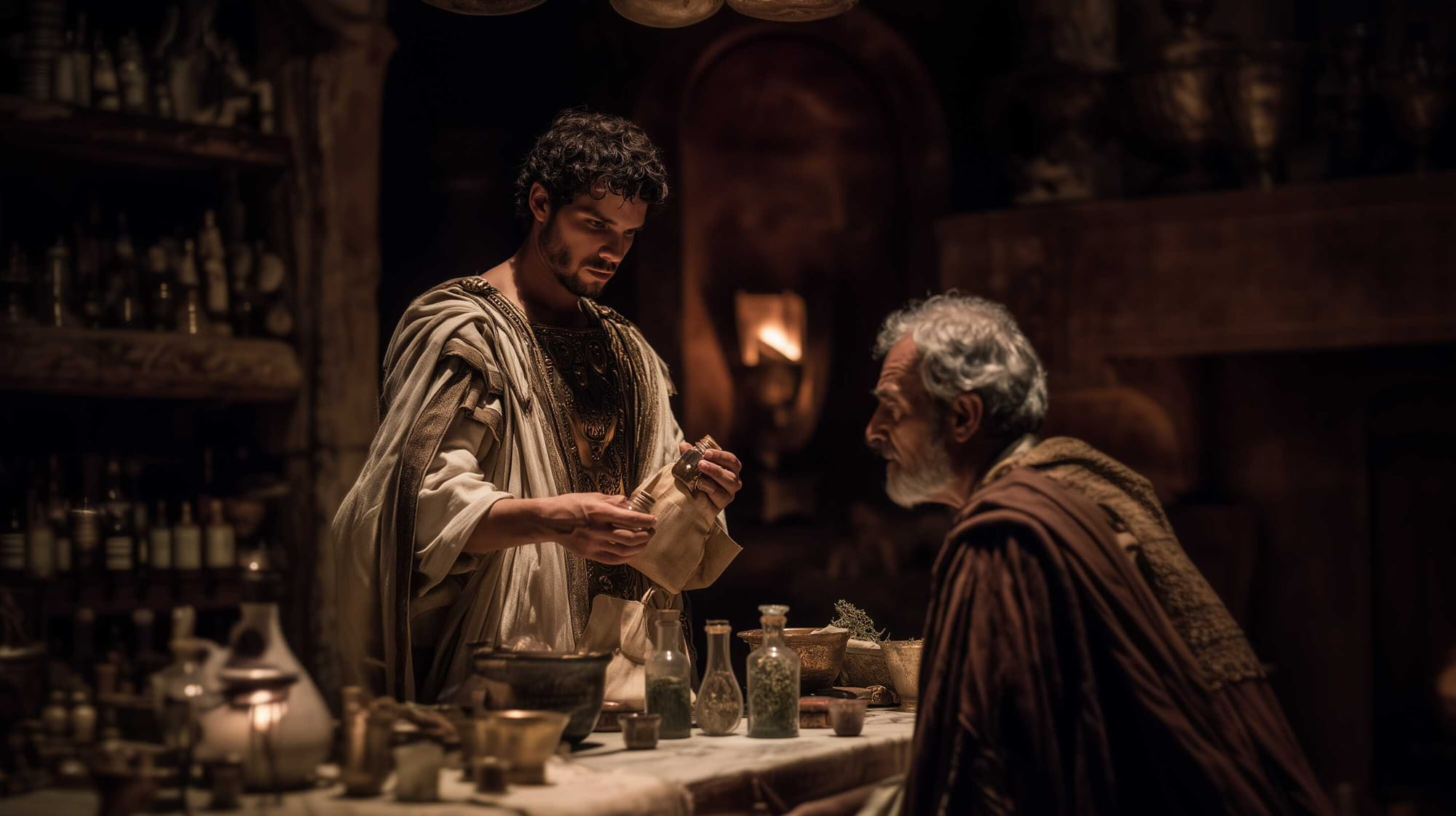While the debate over the return of the Parthenon sculptures to Greece is still open, "Liberation" comments in an extensive article on the British public opinion which is in favor of such a possibility.
In the French "Liberation", journalist Juliette Démas refers to the debate opened in Great Britain on the return of the Parthenon Sculptures to Athens and highlights the fact that the majority of public opinion is in favor of the return of the Greek marbles to their country of origin.
Juliette Démas recalls British Museum President George Osborne's remarks last December about "constructive" talks on a future agreement between the United Kingdom and Greece, and points out "that these hopes have been denied by both the Greek prime minister and the British government itself."
The article highlights British Culture Minister Michelle Donnellan's statement to the BBC that " effectively brought all discussions to a halt" and warned that any return of the statues would mean "opening Pandora's box", leaving the field open for other nations to also request the return of their exhibits from other country's museums as well.
"The British Museum and the Ministry of Culture have been throwing the ball to each other"
The article in Liberation refers to the long-running dispute between the Department of Culture and the British Museum, which, according to the report, have been "throwing the ball to each other" under a 1963 law that prevents the museum from selling or returning its collections.
A law that the government refuses to amend to ensure that "the Parthenon Sculptures [...] rightfully belong to the trustees of the British Museum" acting "within the legal framework" has led to the situation being blocked for a long time.
"Politicians and heads of these institutions thought they could avoid the issue, but this attitude is no longer possible because public opinion has changed," says Dan Hicks, professor of modern archeology at Oxford University and author of the book "The British Museums". The journalist refers to the latest YouGov poll, according to which the British are in favor of returning the marbles to Greece, with 53% in favor of their return and 20% against.
"Attitudinal change in the return of objects in Nigeria"
The journalist refers to the return of objects to Nigeria in 2022 from other British museums looted in the late 19th century, such as that of the University of Cambridge, the University of Aberdeen and the Horniman Museum in South London.
She believes that this is "a sign of a change in mentality that can already be seen in France, which returned the treasure of the Kings of Abomey to Benin in 2021, or in Germany, which has pledged to return several thousand objects to Nigeria, including bronzes from the ancient kingdom of Benin.
Referring to the Vatican's announcement last month that it would return three fragments of the Parthenon to Greece, she points to the campaign for the return of the marbles by British figures such as writer and actor Stephen Fry, who compares the "removal of the Parthenon sculptures to that of the Eiffel Tower from Paris or Stonehenge from Salisbury", but also to the opinion of Dan Hicks, who states, "No one is calling for the return of all museum objects. Decisions are made on a case-by-case basis"
He recalls the controversies surrounding the restoration of works looted by the Nazi regime, noting, "This kind of debate is over and we have learned a lot from these restoration methods. What we are witnessing now is not a culture war, but simply an evolution of morality that goes hand in hand with a shift in public opinion. In fashion, the consumer is no longer just interested in a T-shirt, but asks where it came from and under what conditions it was made. The art consumer asks himself the same questions and wants clear answers: Is there someone, somewhere, who wants this object back?"
Regarding the conditions in the British Museum where the friezes and statues are kept, the journalist notes that "despite the large openings in the high ceilings, the room is dark and cold, and the beige marble is even grayer.".
A student's opinion is quoted, saying, "I have just returned from Athens, where I visited the Acropolis Museum. Its gallery is magnificent, bathed in sunlight. So I understand that the Greeks want to recover these statues, but does not the scandal surrounding them make them a little more interesting? If we start returning all the recovered items - because they were not stolen! - we will be left with empty museums. Not to mention that we have been taking care of them for two centuries."
For Evelien Kampfens, a lawyer specializing in international cultural heritage law and issues related to art theft and researcher at Leiden University in the Netherlands, "these issues should not be looked at from the perspective of ownership, but rather from the perspective of access and control."
"Who has the right to access and control these objects, and where is their location? With some monuments and objects, it's possible that multiple groups will have legitimate claims, and then creative solutions need to be found," she says, adding, "The ideal is not to return all cultural property to its country of origin, but if it's a heritage that is significant to a community, it makes sense for them to have a say in its management. Museums could then continue to display objects from around the world, but on one condition: The story told there is the right one, and interested communities can participate in the exhibition."
According to Juliette Démas, the British Museum is far from doing this. Its explanatory notes say that Lord Elgin, the British ambassador to the Ottoman Empire, "acquired" the sculptures and that the sultan "gave his consent.".
"In a brief chronology, it says that in 1816 Parliament considered and approved Elgin's action. The ambassador's biography particularly emphasizes the condition of the Parthenon, which was then under Ottoman occupation, and portrays Elgin as the savior of a common heritage between Greece and the United Kingdom," says Juliette Démas, underscoring the incredulity of some visitors to the British Museum, such as 74-year-old Helen, who says: "To be honest, I wonder why they are here," and Lindsey, 26, adds, "I do not think many people would miss them if they went to Greece. With documentaries and new technologies, there are other ways to see them. Sure, it's a part of history, but not necessarily a history to be proud of.
Lord Elgin: "foolish plunderer' or 'restorer of good taste"?
In another article by the same journalist entitled: "Parthenon Marbles: Lord Elgin, ‘foolish looter’ or ‘restorer of good taste?’”, reference is made to the story of Lord Elgin. Juliette Démas notes that by bringing the marbles of the Parthenon to London, the British diplomat alienated many of his contemporaries and eventually went bankrupt.
Will the Greeks see the Parthenon sculptures again?
The return of the Parthenon sculptures is also mentioned by Fabien Perrier, Liberation's correspondent in Athens, who reports that a brief offer by Britain has suddenly dashed Greece's hopes for an early return of the Parthenon Marbles, which were looted in the 19th century and are now on display in the British Museum in London. He cites a January 11 statement to the BBC by British Culture Minister Michelle Donnellan.
Referring to reports in the Greek press, such as the newspaper "TA NEA", which indicated that "a long-term cooperation" between the United Kingdom and Greece "should allow the reunification of the frieze in the Acropolis Museum", he wonders if this was a “method of self-subjugation? An attempt to pressure the British government? An attempt to pressure the British government? Or a miscalculation on the part of the Greeks?", noting that "either way, Mitsotakis had to make statements the same day Donelan said these".
"In front of the cameras, during his monthly meeting with the President of the Republic, the Greek Prime Minister admits: "I do not expect immediate results," adding: "If the world trusts us again, I believe that we can achieve the goal of returning the marbles, with absolute respect for the red lines that all governments have established.". According to the journalist, the prime minister "just before the parliamentary elections in the spring, is turning these marbles, an object of national pride and a source of diplomatic tension for decades regardless of the ruling party, into an electoral tool.".
This pride dates back to the time when ancient Athens shone over Europe in the 5th century BC, he notes, and then refers to the great works of the era of Pericles, as described by historian Francois Queirel.
For Professor Louis Godrard, honorary president of the International Association for the Reunification of the Parthenon Sculptures, "it is not a monument like the others, but a symbol. It honors the values that constructed the spirit of Greece: democracy, which emerged in 508 BC, and the essential role of man in history. After all, Plutarch in the 1st century AD described the city as " clothed in the splendor of the ages, made by a living breath, inaccessible to aging". Subsequently, reference is made to the history of the Parthenon up to the sacking by Lord Elgin.
We are reminded of the struggle of Melina Merkouri that began in 1982 and what she said at the Unesco General Conference in Mexico, the constant denial of the British and their argument that the sculptures were acquired legitimately, that their exchange between museums is prohibited by one of their laws, or that they are better preserved in the British Museum than in Athens, but it says that this argument was "weakened in 2009 with the opening of the magnificent Acropolis Museum" and "collapsed in September 2019 with the images of water leaks in the gallery of the London Museum.".
The complaint of the Minister of Culture, Linas Mendoni, is highlighted "the state of neglect of the British Museum strengthens the just demand of Greece for the permanent return of the sculptures to Athens and their reunification with the Parthenon", which, as Fabien Perrier points out, the Greeks repeat it since "Melina", arguing that "these pieces of marble form a unity and tell an essential story about Greece and Europe".
"In the second half of the 20th century, at the instigation of Greece and Italy, people began to believe that it was indecent to demolish monuments in that way. From now on, the opinion is repeated to return these items in order not to mutilate the history of a country", reports Professor Gonar, stressing that in this context, although discussions between the two countries have been at a standstill for years, diplomacy allows progress, referring to Unesco's 2018 proposal to the Greek and British governments to negotiate and its 2021 decision that Greece and the United Kingdom should intensify their efforts to reach a satisfactory agreement under its auspices.
"There is hope for Athens, which wants to obtain recognition of ownership of the Parthenon Marbles," claims a source with knowledge of the matter, according to the journalist, adding that "since the end of 2021, numerous political meetings have taken place with the president of the British Museum, George Osborne, Conservative Chancellor of the Exchequer from 2010 to 2016, who now works at an investment bank.".
"The Minister of State Giorgos Gerapetritis, the Prime Minister, the Minister of Culture, the Minister of Foreign Affairs, they all traveled to London to bring back the Sculptures," the journalist reports, and the Greek side's interlocutor clarifies to Liberation that "these negotiations are actually conducted by our Prime Minister personally." The Greeks wanted to believe it: "He wanted to reach a mutually beneficial solution. Proof that Athens is pursuing a policy of high diplomacy: the restoration of the marbles in exchange for works from the Acropolis Museum to fill the gaps created in the British Museum", reports Louis Godard, with the journalist saying that in the minds of the Greeks this was the deal. According to him, a source confides to the newspaper that "Greece bet that the marbles would stay here if they were returned.". At this point, a reference is made to a NYT research into the intentions of the British.
"On January 11, however, everything went wrong. Is it because diplomacy and intergovernmental negotiations took place in direct exchanges between the Greek prime minister and the president of the museum (who does not have the power to change the law on exchanges between museums)? Or because in Greece the leftist opposition raised the question of ownership of the marbles? Or because the British were afraid of being deceived?" asks the journalist, while the president of the Association of Greek Archeologists states that "in any case, the statement of the British minister proves that the exercise of an international cultural policy, such as the claim of the sculptures of the Parthenon, requires patience, continuity and sensitivity, and must be based on scientific arguments such as the ones of museums or Unesco.". For her, there were actions in the run-up to the elections that were useless or even threatened to lead to a step backwards. The statement of the British minister, which shows that the case is closed, is also the worst thing that has been expected for a long time.
"Certainly, the government has tried to give the public the impression that it is fighting to bring the marbles back to the country. For the Nea Dimokratia party, announcing their return would be a success, which would undoubtedly allow it to garner votes in the spring parliamentary elections," Perrier said.









